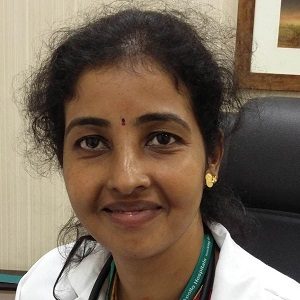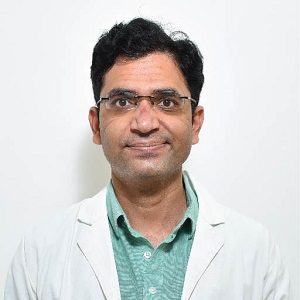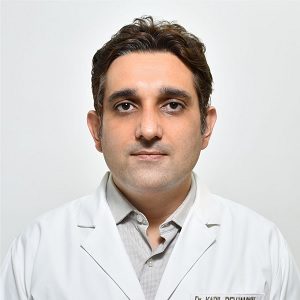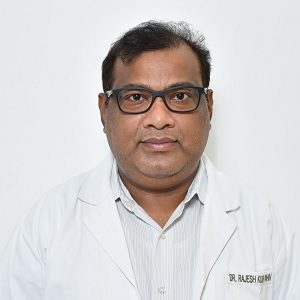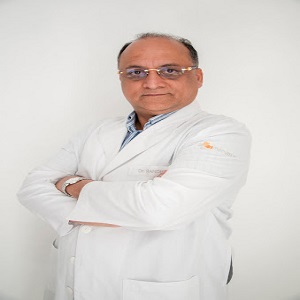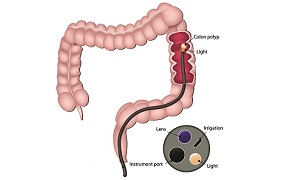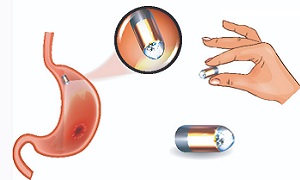Best Doctors in India for Inflammatory Bowel Disease Treatment
- Gastroenterologist and GI Medicine Specialist, Chennai, India
- Over 18 years’ experience
- Apollo Hospitals Greams Road
Profile Highlights:
- Dr. Preethi M is one of the best gastroenterologists in India, with 18 years of expertise.
- Dr. Preethi received many awards for her contribution to the field.
- She offers consultation for Irritable Bowel Syndrome (IBS), Hemorrhoids, Endoscopy, female problems, and other gastrointestinal issues.
- Gastroenterologist and GI Medicine Specialist, Chennai, India
- Over 23 years’ experience
- Apollo Hospitals Greams Road
Profile Highlights:
- Dr. Ubal Dhus is a GI specialist doctor in South India who is proficiently managing Gastroenterological disorders for the past 23 years.
- He acquired his medical degree from Madras University, Chennai, and served people with Hemorrhoids Treatment, and Irritable Bowel Syndrome (IBS) Treatment.
- Gastroenterologist, Gurugram, India
- Over 7 years’ experience
- Artemis Hospital, Gurgaon
Profile Highlights:
- Dr. Abhinandan Mishra is one of the young Gastroenterology doctors in Gurugram who is particularly interested in inflammatory bowel disease treatment.
- Dr. Abhinandan Mishra offers Endoscopic Retrograde Cholangiopancreatography, Ascites tap, Endoscopy, Peroral Endoscopic Myotomy, Capsule Endoscopy, Esophageal Manometry, Magnetic Resonance Cholangiopancreatography, etc.
- Gastroenterologist, Gurugram, India
- Over 15 years’ experience
- Artemis Hospital, Gurgaon
Profile Highlights:
- Dr. Kapil Jamwal is a renowned GI practitioner in Gurugram with an extensive experience in digestive and liver disease.
- The specialist offers treatment for Hepatitis B, Jaundice, Hepatitis C, Inflammatory Bowel Syndrome, Acute Pancreatitis, Liver Diseases, and Irritable Bowel Syndrome.
- Gastroenterologist, Gurugram, India
- Over 18 years’ experience
- Artemis Hospital, Gurgaon
Profile Highlights:
- Dr. Rajesh Padhan is a renowned Gastroenterologist in Gurugram with an extensive experience of more than 18 years in the field.
- He is skilled in carrying out various endoscopy procedures such as Colonoscopy, Endoscopic retrograde cholangiopancreatography, Endoscopic ultrasound, upper GI endoscopy, etc.
- Top Gastroenterologist & Hepatologist | Max Hospital, Saket, New Delhi, India
- 28+ Years Experience
- Max Super Specialty Hospital, Saket, New Delhi
Profile Highlights:
- Dr. Kaushal Madan is a renowned Gastroenterologist and Hepatologist in India with over 28 years of experience.
- He specializes in diagnosing and treating various digestive system disorders, including liver cancer, liver cirrhosis, fatty liver, and hepatitis B and C.
- Dr. Madan provides comprehensive care to liver transplant recipients, offering both pre- and post-operative support.
- He currently serves as the Director and Head of Clinical Hepatology Department at Max Super Speciality Hospital in New Delhi.
- Gastroenterology, Medanta - The Medicity, New Delhi, India
- 40+ Years Experience
- Medanta-The Medicity, Gurgaon
Profile Highlights:
- Dr. Randhir Sud is a preeminent figure in the field of gastroenterology, renowned for his groundbreaking contributions to gastrointestinal endoscopy and therapeutic interventions.
- As the Chairman of the Gastroenterology department at Medanta in Gurugram, Dr. Sud has played a pivotal role in advancing the field of gastroenterology in India.
- Dr. Sud is credited with revolutionizing the practice of gastrointestinal endoscopy in India. He has been instrumental in establishing and integrating advanced GI endoscopic therapy into clinical practice through extensive training programs and live workshops.
Best Hospitals in India for Inflammatory Bowel Disease Treatment
Hospital Highlights:
- Apollo Hospitals is a private healthcare group in India, with its headquarters based in Chennai. Established in 1983 by Dr. Prathap C. Reddy, the group offers a wide range of medical treatments and services across various specialties.
- It is renowned for emphasizing innovation and utilizing cutting-edge medical technologies into patient treatment.
- Known as India’s first corporate hospital, Apollo Hospitals is often credited for pioneering the private healthcare revolution in the country.
- With clinics and hospitals located all throughout India, Apollo Hospitals is a nationwide healthcare organization. Its presence can also be found in foreign countries.
- Preventive health examinations, medical and surgical treatment, and diagnostic centres are just a few of the services that the Apollo group provides.
- The group has several centres of expertise, including Cardiac Sciences, Neurosciences, Orthopedics, Emergency Care, Cancer Care, and Organ Transplantation.
- City: Chennai, India
Hospital Highlights:
- RIMC is a multi-specialty hospital in a sprawling area of 36 acres located in Chromepet, Chennai, Tamil Nadu, India.
- The facility has 450 beds including 130 critical care beds, 9 operating rooms, modern reference laboratories and radiology services, and is conveniently located near road, rail and air transportation.
- RIMC is led and managed by world-renowned physicians committed to healthcare.
- RIMC offers the broadest range of clinical care, education, and research. The hospital offers state-of-the-art technology and modern treatment facilities designed to provide health care at an affordable cost.
- Rela Institute is driven by patient needs, comfort and confidence.
- City: New Delhi, India
Hospital Highlights:
- Fortis Hospital in Shalimar Bagh is a multi-super specialty hospital that strives to provide world-class patient care by leaving no stone unturned.
- Fortis, Shalimar Bagh, with 262 beds and a 7.34-acre footprint, provides the best level of medical care through its team of doctors, nurses, technicians, and management professionals.
- City: Bengaluru, India
Hospital Highlights:
- Established in 2007, the Apollo Hospitals Bangalore is a 300-bed multispecialty hospital situated in Bannerghatta Road, Bangalore.
- Equipped with the state-of-the-art technology, it is a leading hospital dedicated to providing healthcare needs to patients with compassion and expertise.
- It is the first hospital to have completed the highest number of Robot Assisted Heart Surgeries in India.
- Over the years, it has successfully conducted some of the rarest medical procedures such as spinal angiolipoma excision, autologous chondrocyte implantations, and tibial tuberosity shift with MPSL reconstruction.
- The Apollo Hospitals Bangalore has the reputation of performing the greatest series of airway stents in the country.
- Additionally, the hospital is known for providing comprehensive treatment in specialties such as gastroenterology, urology, gynecology, oncology, colorectal surgery, etc.
- The “The Minimal Access Surgery Centre” (MASC), one of Apollo Hospitals, Bangalore’s premier Centres of Excellence, is devoted to the use of minimally invasive surgical procedures.
- In 2013, THE WEEK-A C Nielsen, Best Hospital Survey ranked Apollo Hospitals Bangalore as the 2nd best multi-speciality hospital in Bangalore.
- City: Mumbai, India
Hospital Highlights:
- Gleneagles Global Hospital The 450-bed facility comprises of 17-stories, housing state-of-the-art infrastructure, and advanced medical care facilities.
- The hospital offers end-to-end clinical, surgical, and diagnostic services. It is equipped with a team of eminent medical professionals aided by qualified nurses and medical staff
- The Hospital offers advanced Endoscopic procedures, Hepatobiliary and Liver Surgeries, Surgical and Medical Gastroenterology, Bariatric Surgery, and Robotic surgery.
- The hospital is a center of excellence for Orthopedics, Joint Replacement, Knee Replacement, and Hip Replacement surgery.
- City: Hyderabad, India
Hospital Highlights:
- CARE Hospitals were established in the year 2000, by CARE Group.
- The multispecialty hospital has 435 beds, including 120 critical care beds, with an annual inflow of 180000 outpatients and 16,000 in-patients.
- The hospital provides specialty medical services in Cardiology, Cardiothoracic Surgery, Pediatric Cardiology, Pediatric Cardiothoracic Surgery, Neurology, Neurosurgery, Nephrology, and Urology.
- The hospital has the first dual source, 128 slice CT scanner (for high precision cardiac imaging) – the first of its kind in south India.
- The hospital offers a wide range of accommodation facilities for the convenience of its varied patient base, ranging from general wards to super deluxe rooms.
- City: Mumbai, India
Hospital Highlights:
- Fortis Hospital in Mulund is a 315-bed multi-speciality tertiary care hospital with five JCI accreditations that offers a wide variety of diagnostic and treatment services. The Fortis Hospital in Mulund delivers patient-centred treatment with cutting-edge technology, highly skilled and experienced surgeons, and paramedical staff.
- This institution houses Maharashtra’s largest multi-organ transplant centre. It is also the first heart transplant centre in western India to conduct 100 or more consecutive heart transplants in under four years. It is the only hospital in the city to have multi-organ transplants and has handled the youngest patient for angioplasty. Fortis Hospital Mulund now boasts the first advanced surgical robot in central Mumbai.
- Cardiology and heart surgery, urology, nephrology, neurosciences, orthopaedics, digestive care, emergency and critical care, and maternity care are among the services provided by the hospital.
- City: New Delhi, India
Hospital Highlights:
- Manipal Hospitals, Dwarka, is a super-specialty hospital in Dwarka, New Delhi, which is a part of Manipal Hospitals Group.
- The hospital aims to provide the best treatment on par with international standards at a fraction of the cost.
- Equipped with 380 beds, the hospital is also one of the new age hospitals which are equipped fully with state-of-the-art infrastructure, cutting-edge technology as well as the latest and advanced clinical practices. The hospital also has 13 modular Operation theatres with 118 beds which are solely meant for critical care.
- The hospital comprises internationally acclaimed doctors and highly professional and experienced hospital and medical staff who are able to provide preventive, therapeutic, and diagnostic services all under one roof.
- City: Chennai, India
Hospital Highlights:
- Located in Chennai, India, MGM Healthcare is a top multispecialty hospital that provides all medical services under one roof.
- Since its founding in 2019, MGM Healthcare has quickly become a leading national referral centre, creating several innovative flagship initiatives.
- MGM Healthcare combines next-generation medical and digital technologies to provide better patient results.
- With 12 centres of excellence, more than 400 inpatient beds, 100 intensive care unit beds, and 24/7 emergency care, MGM Healthcare leaves no chance in redefining the patient experience in Chennai.
- MGM Healthcare boasts 250+ expert doctors across 30+ departments, including Cardiology, Pulmonology, Neurology, Obstetrics & Gynaecology, and more.
- They house 12 specialized Centres of Excellence, including Neurosciences, Orthopaedics, and Multi-Organ Transplantation.
- Their team of doctors, nurses, and paramedics works together to give every patient individualized treatment.
Hospital Highlights:
- Lilavati Hospital & Research Centre is India’s premier multi-speciality tertiary care hospital and has been recognised as a global medical excellence centre.
- Lilavati Hospital & Research Centre has built an unrivalled level of trust with its patients over the years, thanks to a solid foundation that comprises cutting-edge facilities, the best medical competence, research, education, and charity endeavours.
- The hospital is quite proud of the fact that it now serves patients from all kinds of backgrounds, not just from the United States but from all around the world.
- The hospital has a total of 323 beds, one of the largest Intensive Care Units (ICUs), 12 Operation Theatres with modern amenities, over 300 consultants, and almost 1,800 personnel.
Inflammatory Bowel Disease (IBD)
Types
Symptoms
The signs and symptoms of inflammatory bowel disease may vary, depending on the severity of inflammation as well as where it occurs.
You are likely to have periods of active illness which is followed by periods of remission. Some of the signs and symptoms include:
- Diarrhea
- Fatigue
- Blood in your stool
- Reduced appetite
- Unintended weight loss
- Abdominal pain and cramping
The signs and symptoms are common to both ulcerative colitis and Crohn’s disease.
You should see your doctor if you are experiencing a persistent change in your bowel habits, or if you experience any of the signs and symptoms of inflammatory bowel disease. Although inflammatory bowel disease usually isn’t fatal, it’s a serious disease that, in some cases, may cause life-threatening complications.
Causes & risk factors
The exact cause of this condition is still unknown. Previously, diet and stress were suspected, but now most doctors know that these factors aggravate but are not the exact causes of inflammatory bowel disease.
An immune system malfunction is a possible cause. When your immune system tries to fight off an invading virus or bacteria, an autoimmune response makes the immune system attack cells in the digestive tract as well. Heredity may play a role as well since inflammatory bowel disease is more common among people where there are family members having the disease.
Some of the risk factors include the following:
Age- Most people who develop this condition are diagnosed before the age of 30. Though some people don’t develop it until their 50s or 60s.
Cigarette smoking- Cigarette smoking is also a significant risk factor for developing Crohn’s disease.
Race or ethnicity- White or Caucasian people generally are at the highest risk of the disease, though it can occur in any race.
Family history- If you have a family member or close relative with this disease, then your risk increases.
Diagnosis
To diagnose inflammatory bowel disease, your doctor will first need to ask you questions about you and your family’s medical history, as well as your bowel movements.
A physical exam might be followed by one or more of the following diagnostic tests:
Computerized tomography (CT) scan
Magnetic resonance imaging (MRI)
Stool sample and blood test
Barium Enema
A barium enema is an X-ray exam of the colon as well as the small intestine. Though this type of test was used in the past, now it has been mostly replaced.
Flexible sigmoidoscopy and colonoscopy
Capsule endoscopy
This test inspects the small intestine, which is quite harder to examine as compared to the large intestine. For the test, you will need to swallow a small capsule that will contain a camera.
As it moves through the small intestine, it will take pictures. Once you’ve passed the camera in your stool, the healthcare team can see the pictures on a computer. This test is used only when other tests have failed to find the cause of the symptoms of Crohn’s disease.
Plain film or X-ray
Treatment
Generally, the first step in treating inflammatory bowel disease is anti-inflammatory drugs. Although these drugs can help you decrease inflammation of your digestive tract, they come with many side effects. Immune suppressant drugs might also prevent the immune system from attacking the bowel and causing inflammation.
You also need certain changes when you are having inflammatory bowel disease. Drinking plenty of fluids is important, though you need to avoid dairy products. Avoid too much stress as well. It is also important to exercise and quit smoking.
Your doctor can also recommend vitamin and mineral supplements to help with nutritional deficiencies.
Talk to your doctor before you add any new supplements to your diet.
Surgery
Surgery can also sometimes be necessary with inflammatory bowel disease. Some of the surgeries include:
- strictureplasty to widen a narrowed bowel
- closure or removal of fistulas
- removal of affected portions of the intestines, for people having Crohn’s disease
- removal of the entire colon and rectum, for those suffering from severe cases of ulcerative colitis
Routine colonoscopy is also used for monitoring colon cancer since those having inflammatory bowel disease are at a higher risk for having it.
Complications
Both ulcerative colitis and Crohn’s disease have complications that are common, including colon cancer, inflammation of the skin, eye, and joint.
It might also lead to a condition called primary sclerosing cholangitis, where there is scarring within the bile ducts, eventually making them narrow and causing liver damage.
Inflammatory bowel disease also increases the risk of blood clots in veins and arteries.
Prevention
You can reduce your risk of developing inflammatory bowel disease by eating healthy and exercising regularly. It’s also best if you can quit smoking.

